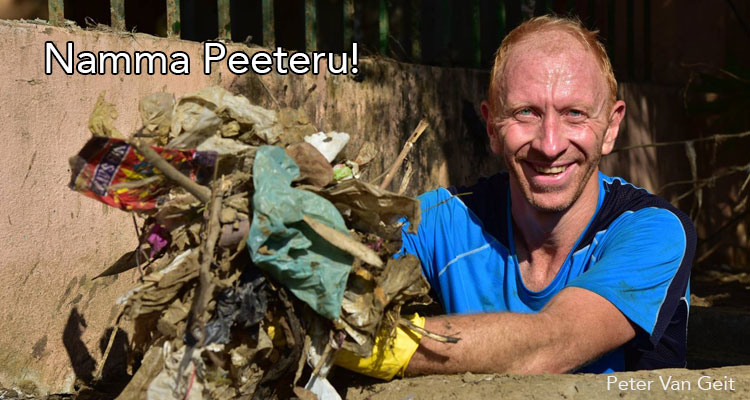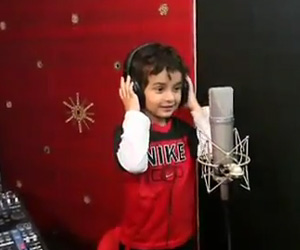Peter Van Geit. Frankly speaking, I don't know him. My interests in Organic farming led…

The seeds of Organic Revolution – Dr. Nammalvar, a true legend
We are blinded by the things around us. Our generation has come to accept the change brought unto them and are ignorant of the consequences. Just as horse blinders are used, we keep ignoring things around us and keep looking in one direction, which in most cases is the wrong one!
Today people are realising the need for a better and healthier lifestyle, thanks to the growing number of unhealthy food habits, fast food, junk food, pest free foods which have pesticides/chemicals in them!, etc, which has led the increase in number of obese in the society, increase in mortal diseases like cancer, not to mention destruction of natural habitat etc.
We as a society have stopped thinking! We do not want to. Some/most say they don’t have the time. Some are even scared. The race to do things fast, to speed up natural processes to accommodate this ever increasing population is on the rise. We are turning a blind eye to a phenomenal problem which we do not want to address.
One of the basics of life is food. Without it survival is tough or impossible. Today most of the food we consume are produced industrially by unnatural means. Hybrid seeds, fertilisers, GMO products/seeds are used extensively today and ultimately the people have no option but to consume it. It is the only option available for most.
Recognising this at a young age was a man born at Elankadu village near Thiruvaiyaru in 1938. He graduated in agriculture from Annamalai University. In 1963, he joined as an officer in the Agricultural Regional Research Centre, Kovilpatti. He was Dr. G. Nammalvar (1938 – 30 December 2013).
Although I am a nature loving person, I was not that much interested in farming methods. I, like most, didn’t care. It was by chance I came to read an article then leading to a couple of videos etc of Dr. Nammalvar that I became fascinated with this old man and his love for organic farming practices. He was the one who got me hooked into Organic farming and me starting this website dedicated to spreading knowledge on Organic Farming in India.
I wanted to meet him but couldn’t since I am abroad. I thought of visiting him during holidays. Unfortunately, the news of his passing came and it shook me to bits. Im not sure why, but I felt we had lost a great man who selflessly contributed to the welfare of the people and the future generations. He was a remarkable human being. I really wish I had met or known him earlier! The people who have will vouch for that.
Dr. Nammalvar has sowed the seeds of Organic Revolution and it is up to us younger and future generations to take up his cause and make it a reality. Let us all try to produce and consume organic food for a healthy life.
Is it too late to change our mindset? I guess not. With the increase in number of health problems related to the use of pesticides and GMO seeds, we see around us the casualties everyday. Let us wake up to reality and change for the better.
Many will say there will not be enough food if we use organic farming. To them I will quote Mahatma Gandhi.
“The world has enough for everyone’s need but not for everyone’s greed”
http://itsorganic.in/videos/need-organic-farming-developing-world-dr-nammalvar/
About Dr. Nammalvar from Wikipedia.org below:
G. Nammalvar (or Nammazhwar) (1938 – 30 December 2013) was an Indian organic farming scientist. Hailing from the agro-based Thanjavur district of Tamil Nadu, he was involved in preaching the farmers to get an edge in organic farming.[1]
Nammalvar born in 1938 in Elangadu, Tanjore District, and he graduated from Annamalai University with a B.Sc degree in Agriculture.
In 1963 he began working for the Agricultural Regional Research Station, a government organization in Kovilpatti, as a scientist, conducting trials on spacing and manure levels of various chemical fertilizers in cotton and millet crops. During his tenure there, the government was conducting experiments in rain fed land, using expensive inputs like hybrid seeds, chemical fertilizers and chemical pesticides which Nammalvar considered futile as the rain fed farmers were resource poor. Based on his experience he felt very strongly that it was imperative to totally reorient the research work undertaken but his peers at the institute paid little attention to his advice. Frustrated, he left the institute in 1969.
For the next 10 years he was an agronomist for Island of Peace, an organization founded by the Nobel Laureate Dominique Pire. His focus was on improving the standard of living through agricultural development in the Kalakad block of Tirunelveli District, Tamilnadu. It was at this time that he realized that in order to get optimal results in farming, farmers should rely only minimally on external inputs. All inputs should come from within the farm. So called wastes should be recycled and used as input. This revelation was a turning point in his life. He completely lost trust in conventional farming practices and began experimenting with sustainable agricultural methods.
In the late 1970s, Nammalvar became greatly influenced by Paulo Freire and Vinoba Bhave and their theories on education. The purpose of education should be freedom. Freedom is essentially self-reliance. Self-sufficiency means that one should not depend on others for one’s daily bread. Secondly, one should have developed the power to acquire knowledge for oneself. And last but not the least, a man should be able to rule himself, to control his thoughts and feelings.
Eager to propagate these new theories on education, specifically to aid farmers in becoming self-sufficient, he started a Society, Kudumbham in 1979. “Participatory Development” was the way forward. There can be no education without action. Nor can there be any action without education. Both go hand in hand. Nammalvar interacted with local farmers, understood their needs, and based on their input, evolved farming practices suited to the local farmers.
In 1987, Nammalvar had attended a 4-week training course conducted by the ETC Foundation, Netherlands, on ecological agriculture. In 1990, he founded a network LEISA (Low External Input and Sustainable Agriculture) to promote the concepts of ecological farming, specifically the importance of self-reliability and low external inputs. During the same year, he started an ecological research centre for rain-fed cultivation in Pudukottai district.
Nammalvar was also greatly influenced by Mr. Bernard de-Clerk of Auroville fame, whom he had worked with since 1984. In 1995 he was nominated as the Tamilnadu state coordinator for ARISE (Agricultural Renewal in India for Sustainable Environment). Concurrently, Bernard was the coordinator at the national level. During his tenure he travelled widely across India promoting the principles of sustainable agriculture.
When the Tsunami hit India on December 25th, 2004, Nammalvar was actively involved in the rehabilitation process. In 2005, he helped farmers across various villages in Nagapattinam district to rehabilitate. In 2006, he left for Indonesia and assisted in reclaiming several farms there in Tsunami affected areas.
Recognizing his extensive work in the field of agriculture, the Gandhi Gram Rural University, Dindugal honored Nammalvar with a Doctorate of Science degree in 2007.
Nammalvar has travelled widely across the world, observed the agricultural practices in various different ecological systems and based on his findings, has trained farmers and NGO workers. He has written several books and articles in the Tamil language. He has a wide readership across different sections of society. His works will soon be translated to the English language, making his writings easily accessible.
Nammalvar spent a substantial part of his time actively touring the south and conducting training classes on ecological farming. He was in the process of setting up several research cum training centers across South India. The first will be at Surumanpatti, Kadavur in Karur district. He was also actively involved in linking different farms and institutes around the world so as to accelerate the process of ecological development.
Nammalvar was the Chief Guest for the practical session conducted on organic farming titled “iniyellam iyarkai” (Now all natural) on July 20 & 21 2013 by the Ramanathapuram district collector.



i need change my name to islam what is proces
Please check the nearest embassy and ask for procedure or visit a local mosque or islamic institute for details.